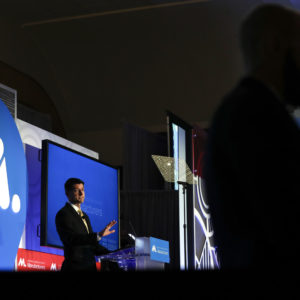Earlier this week, House Speaker Paul Ryan delivered a major speech articulating his vision for how lawmakers should enact comprehensive tax reform this year, ideally before Thanksgiving. Leadership to bring consensus is urgently needed at this point in time to make good on pledges by President Trump and Republicans campaigning last year to take action on reforming our antiquated tax code.
In anticipation of this optimistic goal, the stock market has arguably been on a strong run—the S&P 500 has risen about 17 percent—and data from the Richmond Fed show substantial business investment increases in the first quarter of 2017. Compared with meager or negative changes in the last quarter of 2016, investment in non-residential structures increased 28.3 percent, fixed investment 11.4 percent, and equipment 7.2 percent.
Optimism has a short half-life in the absence of concrete action. So far this year, action has been limited mainly to political rhetoric which has been offset by political fumbling, chaos and political food fights by both parties instead of governing. Unless Congress focuses more seriously on passing permanent tax reform legislation – which Speaker Ryan signaled as his priority – the Republicans run the risk of voters turning control back to the Democrats in Congress in 2018. Lawmakers would do well to remember the sage counsel of James Carville, who in 1992 kept the Clinton campaign focused with the mantra, “it’s the economy stupid.” It still is. And, with a labor participation rate still below the pre-recession high of 66+ percent, such data should provide urgency to action on the economy.
Republican leaders in the House have been trying to rally support for their tax blueprint introduced last June—A Better Way. Much of the debate has focused on the bold, although less widely understood, border adjustment provision, which is opposed by special interests.
In order for the Senate Republicans to pass a tax bill without Democratic support it must not add to the deficit beyond 10 years. In the House, the problem is to find a mix of provisions that will garner 218 votes, a major challenge given the Freedom Caucus’s “just say no” attitude to many solutions for tax reform. The presidents of Americans for Tax Reform and the Club for Growth in a Wall Street Journal op-ed provided one solution which involves extending the budget time frame from the current 10 years to 20 or 25 years. That would enable the Senate to pass tax reform legislation on its own. The larger message was, just get it done. This solution was initially suggested by Pennsylvania Sen. Pat Toomey, when he wrote in an early May Bloomberg op-ed, “a 20- or 30-year tax reform would be as close to permanent as we can get since Congress would be likely to overhaul the tax code within that period anyway.”
The remaining hurdle is getting 218 votes in the House and 50 or 51 in the Senate. When Vince Lombardi became a legend with the Green Bay Packers, he was asked about the secret of his success. His answer was to do a few things but do them very well. That is the philosophy that should be the path for permanent tax reform. There is broad agreement that the corporate rate is too high—it’s among the highest in the developed world. There is agreement that our worldwide tax system has allowed companies to transfer profits overseas; a provision in the White House plan would repatriate the trillions of dollars held by companies overseas with a one-time tax at a competitive rate. Congress should not let the best be the enemy of the good. Following the philosophy of Ronald Reagan, getting 80% of what you seek is a win.
A permanent, comprehensive tax reform bill passed this year would stimulate the economic momentum that started after November 2016 and help get the economy out of the 2% or lower rut that it has been in since the great recession.
Pursuing this comprehensive tax reform agenda would take courage and a willingness to do the right thing and let the chips fall where they may. The prospect of being voted out of office in 2018 may provide the needed infusion of courage.

